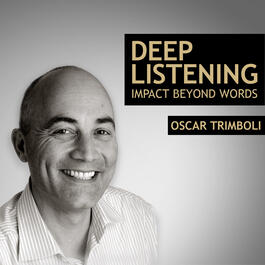
adaptive workplace listening and why its different from active listening
Nicole Lowenbraun and Maegan Stephens, authors of the book "Adaptive Listening: How to Cultivate Trust and Traction at Work," explain the impact of adapting your listening in the a corporate workplace. They introduce the SAID listening model, which stands for Support, Advance, Immerse, and Discern, each representing a specific listening style and goal. They emphasize that everyone has a unique listening style and good intentions but may not always meet the speaker's needs. Nicole, a content director, and executive speaker coach, highlights the necessity of adapting your listening style based on the speaker's requirements. Maegan, a senior director of communication services, shares her experiences in coaching executives and the challenges of listening and providing feedback tailored to executive leaders. They delve into their three-year journey of writing the book, emphasizing the need for detailed, actionable steps and memorable models for effective communication. They discuss the complexities of discernment in the workplace and offer insights into guiding others to listen effectively and seek the right type of listening in different situations. S A I D Support Advance Immerse Discern As a bonus, listen to Nicole, Maegan, and Oscar debrief on the process of listening during the recording of this discussion.
From "Deep Listening - Impact beyond words - Oscar Trimboli"


Comments
Add comment Feedback